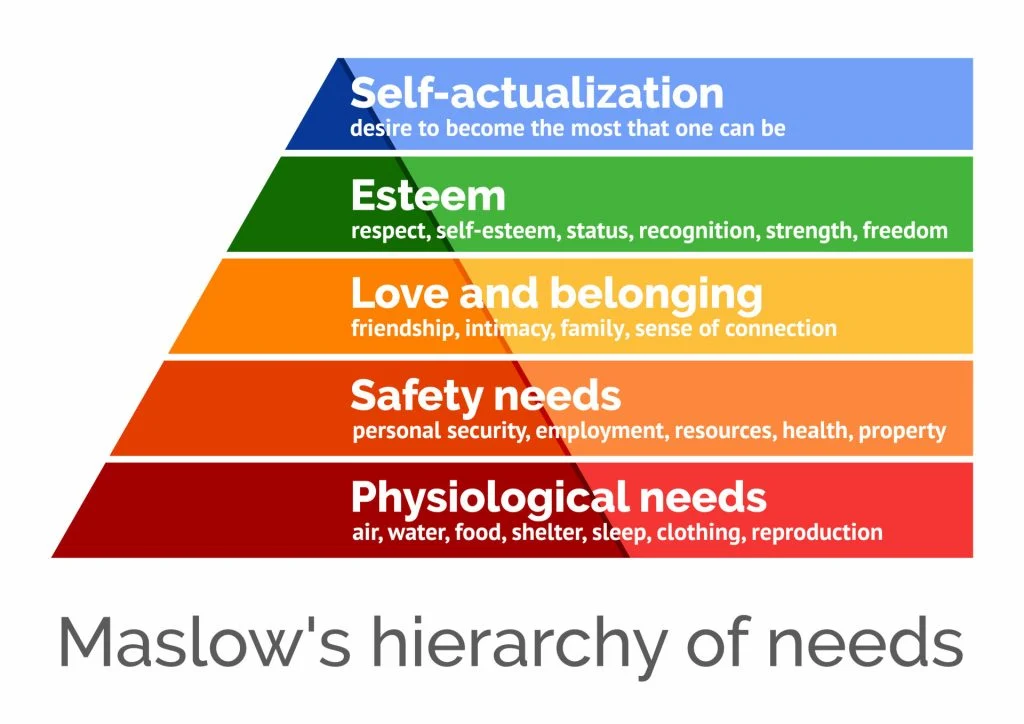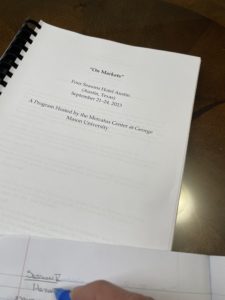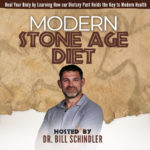We need an infrastructure reset
I spent the last few days in Austin in a room filled with some of the most intelligent, thoughtful, mission driven people I have ever met. During this first of three colloquia I, along with the other participants in the John Stuart Mill Fellowship, dove deep into discussions on political economic thought after reading works of Smith, Mill, Montesquieu, Tocqueville and Hayek. In addition to the meaningful dialogue generated during our discussion sessions, equally valuable conversations took place outside of the scheduled meetings.
What I want to explore through this blog post stems from one of these “snack-break” interactions that got me thinking about how something that may be missing in our modern lives has an impact on the quality of our overall health and well-being.
Okay, let me provide some much needed context.
We had just finished a session during which one of our discussions considered the possibility that it may only be after the basic necessities of life are in place do people begin to desire, as Adam Smith describes, “trinkets of frivolous utility”, “little conveniences” and “baubles.” This made me wonder how much of modern society’s attention is currently focused on attaining the very things in life that Adam Smith described.
everything in QuickTime
All of this was swirling around in the back of my mind when I was talking with one of the more computer technology savvy members of the group as he stated that he thought Apple’s QuickTime Player may be the most accurately named computer application in existence. He continued by describing how QuickTime Player provides the pretense of something, a “quick” view, but is really only a fraction of the actual amount of time it represents. And, this is even more extreme when you consider the amount of time required to plan, film, cut, edit, enhance and post which is exponentially more than the length of time the video lasts on QuickTime. What he lamented here was how watching a QuickTime video offers the viewer a sense of an experience without actually delivering all of the important things that come from the genuine experience itself.
Over the course of the next several minutes he expanded on this line of thinking to suggest that it is a proxy for so many other things in our modern lives. We experience the shell of a real thing without the fulfillment that the actual genuine counterpart can provide. For example, we don’t have food, rather, we have QuickFood. As I considered more deeply the discussion point from our session this brilliant analogy began to grow and take on more meaning.
trinkets of frivolous utility
This idea of the need to meet the basic necessities of life before being able to create and desire trinkets of frivolous utility is not an isolated idea. In fact, it permeates other disciplines as well. Consider American psychologist Abraham Maslow’s pyramid of needs that he believed drove human behavior. There are five levels in Maslow’s pyramid.

At the bottom there are the physiological needs necessary for survival such as food, shelter, and water. Then there is security and safety followed by social needs such as love, acceptance, and belonging. As the hierarchy of the pyramid continues Maslow brings in needs that can be met achieving accomplishments and engaging in hobbies. In short, “Maslow asserted that so long as basic needs necessary for survival were met (e.g., food, water, shelter), higher-level needs (e.g., social needs) would begin to motivate behavior.”
Similarly in anthropology, a discipline with which I am much more familiar, Marvin Harris introduced the concept of Cultural Materialism which contained a hierarchy similar to Maslow’s pyramid. At the bottom is an infrastructure focused on the production of the necessities of life including food, shelter and clothing. It also included mating patterns. At the next level is structure which includes things like domestic and political economy. And finally, at the very top, is a superstructure that consists of recreational products and services.
So, what does this all have to do with modern nutrition, health, nourishment?
If these models are correct and we require certain basic necessities in place before we can begin to worry about more frivolous things, I don’t believe we have the infrastructure that we think we do to be so focused on all of the non-essential things that dominate our lives.
For all too many of us in the modern world one or more of the following is true:
- We have food, but not nourishment
- We have houses but not homes
- We have “likes” and “follows” but not true companionship
- We have porn but not love
- We have locks for safety but not a safe community
- We have college diplomas but not education
And, that list can go on and on. What is far too common in our modern lives is a shell of these essentials in our lives but are without meaning, without depth and without the real nourishment that they can provide. The real danger is when it superficially feels like we have the infrastructure in place to free us to spend more time engaging in activities that would fall in the superstructure category, but we actually don’t.
what can you do?
What we need to do is take an honest inventory of the things that are most important in our lives, the infrastructure, and consider if they are actually providing us the nourishment we require. If not, then we need an infrastructure reset and need to replace the aspects of our “quick” lives with the genuine thing.





 The Goodie Bag Exchange
The Goodie Bag Exchange
Excellent commentary Dr. Bill! Agreed! The same is true of how we raise our children – “presence” without attention; “time” without connection. Similarly, our health and food systems – fast food vs slow cooking; pills and vitamins vs nourishing vegetables and fruits; penned and corralled chickens and cows vs pastured and wild game. Wonder bread vs fermented sourdough…A lack of integrity, commitment and care in so much of what we do…which unfortunately leads to so many social & physical ills for which we and future generations will pay the price. I am grateful to have been raised in my early years by my grandparents on a dairy farm – respect for hard work, patience, gratitude and commitment were ingrained in me, and I see that in you and Christina, the way you’ve raised your children, and the work you do now. Thank you! I can’t wait to come visit the Stone Age Kitchen and to finally have the opportunity to meet Christina in person! My best to the both of you! Tamara
Thank you so very much for your kind words, Tamara! You are absolutely right and we love the examples that you shared – especially the time without connection so very true! We can’t wait for you to visit!!
Tamara, you read my mind! I headed here to the comments to express these feelings. This article alone is an outline for a PhD in thriving as a human and should be mandatory reading for all our leaders, if creating a better world is their true desire. Thank you Bill and Christina! I too hope to make to the Stone Age Kitchen & ESFL next year. Until then, may your success continue to multiply exponentially.
Thank you so much, Marie!! If only we could all start thinking about these things a little bit differently. Hope to see you in Chestertown soon!
Cheers!
Christina